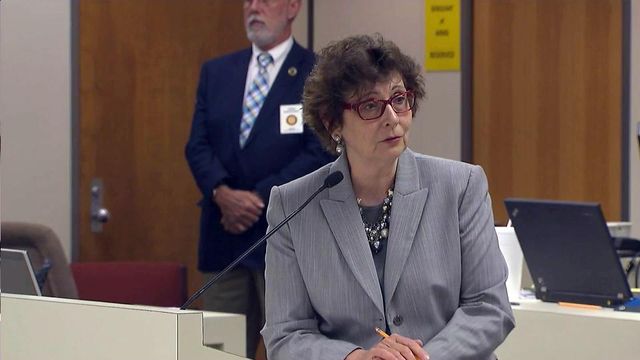State regulators critical of environmental overhaul bill
As the Senate prepares to debate a massive overhaul of regulations, mostly environmental, the Department of Environment and Natural Resources sent a letter Tuesday opposing the measure.
Posted — UpdatedBefore Monday afternoon, House Bill 765 was a one-page measure related to gravel trucks. The version unveiled Monday afternoon in the Senate Agriculture, Environment and Natural Resources Committee is a hefty 54-page omnibus that rolls back regulations on air quality, water quality, stormwater runoff, permitting and recycling.
"DENR cannot support the bill as written," advised agency legislative liaison Matthew Dockham in a letter sent to senators.
The agency was largely silent at Monday's meeting, a point sharply noted by Sen. Jeff Jackson, D-Mecklenburg. Tuesday's letter addresses some of the questions raised but not answered Monday.
Of particular concern to the agency, according to Dockham, is a provision that would ban the state's Division of Water Quality from regulating any type of public or private utility line project, from power to sewer to fiber. The letter included several photos from a utility pipeline project that caused major environmental damage in Wake County.
"It appears that anyone could put sewer lines (or other utilities) in anywhere without regard to any potential environmental impact," Dockham wrote. "The complaints that would be generated as a result of this proposed legislation would be innumerable. Exempting Public and Private Utilities like this would be potential for severe environmental damage."
The agency also expressed concerns with a provision that would allow development within buffers along waterways and another that would double the density of coastal development allowed before developers must address stormwater runoff. The letter warns that the increase would be likely to have a negative impact on fish and shellfish in surrounding waters.
Another major provision opposed by the agency would allow polluters to be exempt from fines for violations as long as they report the violations themselves. It allows businesses to conduct environmental self-audits. Those audits would not be discoverable for any civil case or administrative action, limiting the polluters' liability for a hazardous spill, although they could be obtained by criminal investigators if regulators had reason to believe a crime was committed.
Dockham warns the provision could cause trouble with the U.S. Environmental Protection Agency, which has the power to step in as regulator if the state isn't perceived to be exercising sufficient oversight.
The agency also objects to a provision that would ban local governments from imposing any stormwater management rules stricter than the state's baseline rules.
"We recommend retaining the language 'or exceed' to allow local governments to exceed minimum state standards when they deem it necessary to protect local water resources that may be crucial to the economic welfare of the community, such as recreational uses," Dockham wrote. "In addition, allowing local governments to exceed minimum state standards affords them the flexibility to align their stormwater requirements with their other ordinances, thereby streamlining the local permitting process."
The letter was not discussed at Tuesday's Senate Finance Committee hearing on the bill. Chairman Sen. Bill Rabon, R-Brunswick, said the committee would not discuss any of the environmental provisions of the bill, limiting its attention to provisions that affect state revenue.
House Bill 765 passed that committee on a voice vote and could be on the Senate floor as soon as Wednesday.
Related Topics
• Credits
Copyright 2024 by Capitol Broadcasting Company. All rights reserved. This material may not be published, broadcast, rewritten or redistributed.





